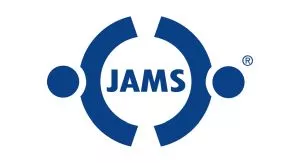As of the end of 2020, according to the COVID Coverage Litigation Tracker maintained by the University of Pennsylvania Law School, there were 1,457 pending lawsuits between policyholders and insurers seeking rulings as to whether business interruption and/or other losses will be covered under first-party property insurance policies. The first lawsuit was filed during the week of March 16, 2020, and new ones are still being filed nearly a year later. Many of the policies have one-year limitations of action provisions, so at some point new filings will taper off, but with closure orders having occurred at different times in different places, we are not at that point yet. The lawsuits involve many insurers across many industries, although the single largest sector is restaurants, and potentially implicate the laws of every state. The insurance policies at issue in the lawsuits have several variations in policy language, although most involve some version of the phrase "direct physical loss or damage" and some involve virus exclusions. Very few of these kinds of insurance coverage lawsuits have been mediated or settled.
It may be time for policyholders and insurers to start thinking about alternative dispute resolution. Mediating some of these lawsuits with a mediator skilled in insurance issues can provide a different course than the current no-compromise litigation path. Mediation can help parties reach a satisfactory resolution, but even if a settlement cannot be reached, going through the mediation process may lead to a more focused litigation, with less discovery and lower costs.
One reason to consider mediating is that after nearly a full year of lawsuits being filed and litigated, there remains mostly uncertainty and the prospect that certainty isn't coming anytime soon. There have been 170 rulings on motions to dismiss and 7 rulings on motions for summary judgment as of the end of last year. The insurers have racked up quite a few wins on motions to dismiss, with 103 granted with prejudice and no amendment allowed. Presumably, several of these rulings are being appealed although some appeals may be dropped. Of the 7 cases in which summary judgment motions were brought, the insurers won three and the policyholders won four. The pace of summary judgment rulings picked up in January of 2021.
There are probably some conclusions to be drawn from this data, even though the data is provisional and changing by the day, but the most compelling conclusion is that these cases will be going on for quite some time and there will be many more decisions, including appellate decisions at various levels. More recently filed lawsuits are starting to make different allegations than prior lawsuits and may prove more resistant to motions to dismiss. The precedential value of many of the earlier decisions may be limited for this reason. So despite all of these decisions to date, there is and will remain considerable uncertainty for both sides for a long time to come.
Also, the stakes are high for both sides. Insurers face portfolio risk—risk that standard policy language will be deemed in one or more states to mean something very different than it does in others. A win in a state supreme court could have significant consequences for this, even on cases not yet filed. Policyholders are fighting for survival and looking for a source of funds to re-open or continue operating their businesses. Unlike the U.K., where the national insurance regulator could bring a test case relatively quickly to a single court and get some level of clarity in a reasonable time frame, we in the United States operate in a different and more fragmented framework, where private lawsuits in individual cases will be dispositive, one at a time, and subject to reversal or revision on a state-by-state basis until state supreme courts have finally spoken, if indeed they speak with clarity and in a way that will be precedential.
In the meantime, policyholders and insurers are incurring costs and living with uncertainty. In those cases where the policyholder's claim survives the initial motion to dismiss, discovery will not be cheap. One aspect that has not been discussed much as of yet is establishing the amount of loss. This will implicate different policy provisions with presumably competing forensic accounting experts required in many cases to establish what was actually lost due to the covered loss under the policy language at issue as compared to any background loss of income attributable to general economic slow down. There might need to be additional motion practice on these points in many of the cases.
Given the uncertainty, the costs and the corollary issues around litigation, one tool that is uniquely suited to add value to both sides in this situation is virtual mediation. Mediation can serve multiple functions, including helping parties explore whether a settlement is possible. Mediation can provide a curated conversation about not just the core coverage issue, but also the size of the loss and the issues that will follow should the policyholder survive the coverage grant question. Mediation could lead to a more thoughtful and nuanced approach to these cases that may lead to some level of satisfaction for both sides. Virtual mediation is particularly efficient. Scheduling is much easier when no travel is involved. Because insurance company representatives may not be local, not having to travel to the mediation makes claims representatives more available and accessible. Virtual mediation costs less than in-person mediation, may take less time and provides flexible structuring and scheduling. (See "Is Virtual ADR the 'New Normal'?" by Peter Halprin and Andrew Nadolna.) Only you can decide whether your case is ready but why not give it some thought?
Upcoming Webinars from JAMS
CLE Credit available
Please use the links below to register
US Magistrate Judges on the Art of Settlement
Current Issues in the Mediation of Bankruptcy Disputes
Cyber Insurance for a Hackable World: The Latest in Coverages,
Litigation and Opportunities for Settlement
The content of this article is intended to provide a general guide to the subject matter. Specialist advice should be sought about your specific circumstances.

